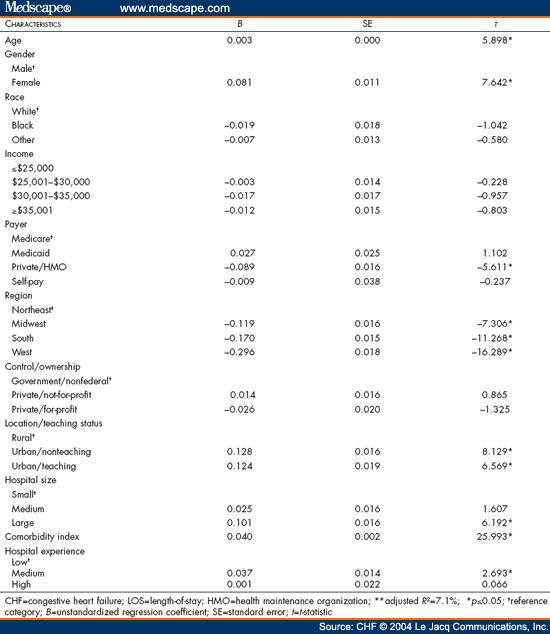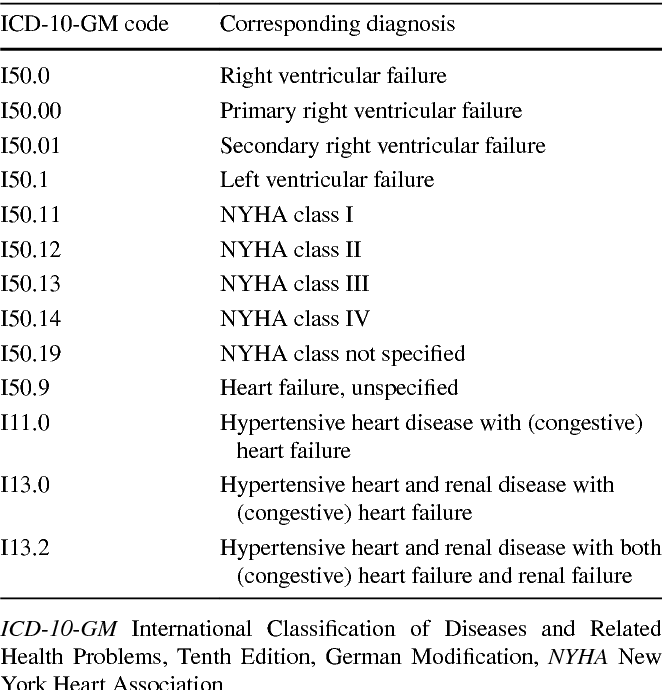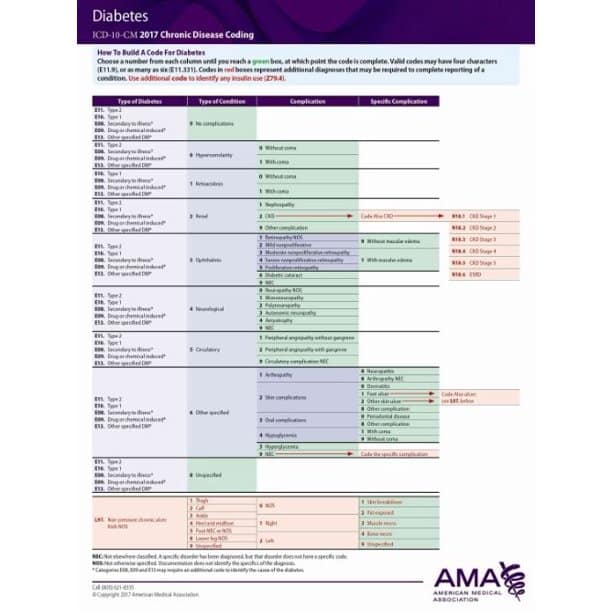Chf Icd 10 Codes And Guidelines
Most of the heart failure codes include in chapter 9 of ICD-10 CM manual, diseases of circulatory system, code range I00-I99.
- Combination code If patient has any type of heart failure and hypertension, it should be combined and coded as I11.0 eventhough physician has not linked both. It should not be coded combined if the medical record states the conditions are unrelated.
- Heart failure should be coded additionally when coding I11.0
- Do not code I11.9 when coding I11.0 .
- When coding biventricular heart failure it is necessary to code the type of left heart failure also according to the code also note with I50.82
Go by Failure, Heart to find correct codes for heart failure in ICD-10 CM manual index.
Look at the below scenarios to clearly understand the coding concepts of CHF.
CHF ICD 10 Code Example 1
Elizabeth is a 65 year old female who comes to emergency department for shortness of breath and leg edema from past 2 days. She came to visit doctor as the symptoms are getting worse. She has hypertension and takes Lisinopril for the same. She does not have chest pain or palpitation. She is not a smoker. Her family history includes heart disease for her mother and brother. Vitals showed temperature 97.3 F, heart rate 72 bpm, respiratory rate 25, BP 150/96 mmHg. Physical exam showed pitting edema on both the extremities, shortness of breath and dry skin. Physician ordered for blood tests, EKG and chest X-ray. This case was diagnosed as acute diastolic heart failure.
Treatment For Congestive Heart Failure
There are several medications that can be used to treat CHF. The first is ACE inhibitors. Angiotensin-converting enzyme inhibitors open up narrowed blood vessels to improve blood flow. Vasodilators are another option if you cannot tolerate ACE inhibitors. ACE inhibitors shouldnt be taken with the following medications without consulting with a doctor, because they may cause an adverse reaction. The second type of medication is beta-blockers. Beta-blockers can reduce blood pressure and slow rapid heart rhythm. Beta-blockers should be taken with caution with the following medications, as they may cause an adverse reaction. The third type of medication is diuretics. Diuretics reduce your bodys fluid content. CHF can cause your body to retain more fluid than it should. Thiazide diuretics cause blood vessels to widen and help the body remove any extra fluid. Loop diuretics cause the kidneys to produce more urine. This helps remove excess fluid from your body. Potassium-sparing diuretics help get rid of fluids and sodium while still retaining potassium. If medications arent effective on their own, more invasive procedures may be required. Angioplasty, a procedure to open up blocked arteries, is one option. Your cardiologist may also consider heart valve repair surgery to help your valves open and close properly.
The table below includes the most commonly used ICD-10 codes for Congestive Heart Failure:
| ICD-10 Chapter |
|---|
Seattle Heart Failure Model
2 days agoNYHA Class 1. BiV Pacer/ICD. Same as BiV pacer. LVAD. NYHA Class 4 and. EF 25% and. Mean 2 year survival 50%. If you want to see the effect in the model anyway, make the patient characteristics match the criteria, then click on the device you want, then set the patient criteria back to the original values.
Also Check: Can Hypothyroidism Cause Heart Palpitations
Read Also: What Is The Difference Between Heart Rate And Blood Pressure
What Is Diastolic Chf
Diastolic heart failure occurs when a heart is unable to relax fully, making ventricles deprived of enough blood to pump the blood to other organs. The volume and pumping force decreases significantly making the heart as well as other body areas deprived of oxygenated blood significantly. Doctors use different medications as well as surgical options to treat this condition.
Tabular List Of Diseases And Injuries

The Tabular List of Diseases and Injuries is a list of ICD-10 codes, organized head to toe into chapters and sections with coding notes and guidance for inclusions, exclusions, descriptions and more. The following references are applicable to the code I50.9:
Inclusion Terms
Read Also: Can Ibs Cause Palpitations
Recommended Reading: How To Count Heart Rate On Ecg
Complications & Comorbid Conditions Rules For I5023
When I50.23 is used as a secondary diagnostic code, the patients visit may be considered to have Complications & Comorbid Conditions or Major Complications & Comorbid Conditions .
Exclusions apply. When the primary diagnostic code is is in the exclusion list, the patient visit CC/MCC does not qualify for a CC or MCC.
CC/MCC grouping rules are adjusted each year, so check the rules for the fiscal year of the patients discharge date.
Chronic Systolic Chf Icd 10
The Chronic Systolic CHF ICD 10 code is I50.22. The third code in this category as chronic systolic heart failure I50.22 is the code of choice here. The main code has excluded notes beneath it that states that a code cannot be used here if there is a combination of the acute and chronic condition of systolic/diastolic heart failure.
Donât Miss: Heart Rate When Having A Heart Attack
Also Check: Heart Bypass Surgery Age Limit
Unspecified Combined Systolic And Diastolic Heart Failure
- 2016201720182019202020212022Billable/Specific Code
- Edema of lung with heart disease NOS
- Edema of lung with heart failure
- Left heart failure
- Pulmonary edema with heart disease NOS
- Pulmonary edema with heart failure
- edema of lung without heart disease or heart failure
- pulmonary edema without heart disease or failure
Coding For Congestive Heart Failure
April 23, 2021 / By Rebecca Caux-Harry
I was reading an article the other day about a young man who developed severe biventricular heart failure after consuming a large quantity of an energy drink every day for 2 years. I remember my days as a college student and the need to be mentally alert for my classes and studies. We didnt have energy drinks at that time, but there were, and still are, caffeine pills. I tried them once or twice and found myself so overwhelmed by the caffeine side effects that there was no benefit. I guess I was lucky in that way.
While the young British student is expected to make a partial to full recovery with ongoing treatment, the article got me thinking about the ICD-10 codes for congestive heart failure . CHF is when the heart muscle doesnt pump blood to the rest of the body as it should. The condition is usually progressive, meaning most people arent cured, but rather managed with medication and lifestyle changes.
When I first started coding, we only had 3 ICD-9 codes for CHF: 428.0, 428.1 and 428.9. A few years later, those codes were expanded with specificity for acuity and type . Now, with ICD-10 we have a wide variety of codes to choose from, but as always, selection of the most accurate and specific code depends entirely on the physicians documentation.
Rebecca Caux-Harry, CPC, is a professional fee coding specialist with 3M Health Information Systems.
Also Check: The Diagnosis Of Heart Failure Is Usually Confirmed By Which Of The Following
Fransoo Et Al And Fransoo Et Al
- In The 2013 RHA Indicators Atlas by Fransoo et al. and The 2019 RHA Indicators Atlas by Fransoo et al. residents were considered to have CHF if they met one of the following conditions:
- one or more inpatient hospitalizations in one year with a diagnosis for CHF: ICD-9-CM code 428 or ICD-10-CA code I50 OR
- two or more physician visits in one year with a diagnosis for CHF .
Only Manitoba residents aged 40 and older were included.For more information, please see:
What Is The Main Term For Congestive Heart Failure
Congestive Heart Failure Congestive heart failure is a chronic progressive condition that affects the pumping power of your heart muscle. While often referred to simply as heart failure, CHF specifically refers to the stage in which fluid builds up within the heart and causes it to pump inefficiently.
Don’t Miss: Congestive Heart Failure End Stages
International Study To Determine If Adreview Heart Function Scan
1 day agoJan 14, 2016 ·This is an event-driven Phase IIIb, multicentre, randomised, clinical study to demonstrate the efficacy of AdreView imaging for appropriately guiding the decision of implantable cardioverter defibrillator implantation, in New York Health Association class II and III heartfailure participants with 25%< =left ventricular ejection fraction
- 2016201720182019202020212022Billable/Specific Code
I50.21 Acute systolic heart failure
Reimbursement claims with a date of service on or after October 1, 2015 require the use of ICD-10-CM codes.
Determine The Cause Of Heart Failure

One of the most important things you understand, when coding for heart failure, is that there can be many very different reasons why somebody can develop heart failure, and the ICD-10-CM coding system, as complex as it is, allows for very fine granuation in this respect. Therefore, your first decision to make, when looking for a code to use, is to determine, from the note, what is the underlying cause for heart failure. To illustrate, I am listing a few of the more common ICD-10 codes for heart failure based on cause:
- I11.0 Hypertensive heart disease with heart failure
- I09.81 Rheumatic heart failure
- I97.131 Postprocedural heart failure following other surgery
- I97.130 Postprocedural heart failure following cardiac surgery
- I13.0 Hypertensive heart and chronic kidney disease with heart failure and stage 1 through stage 4 chronic kidney disease, or unspecified chronic kidney disease
- P29.0 Neonatal cardiac failure
Note that none of the above conditions where heart failure is present use the root I50 for buidling the ICD-10 code.
Don’t Miss: Which Part Of The Brain Controls Blood Pressure, Heart Rate And Respiration
This Search Uses The Five
Each main plan type has more than one subtype. Some subtypes have five tiers of coverage. Others have four tiers, three tiers or two tiers. This search will use the five-tier subtype. It will show you whether a drug is covered or not covered, but the tier information may not be the same as it is for your specific plan. Do you want to continue?
Assumptive Coding For Heart Disease A Coders Perspective
Official guidance on ICD-10-CM coding raises questions regarding how to document cardiac care.
The first step in choosing the proper ICD-10-CM code is reading the medical documentation to identify the diagnosis the provider has documented and confirmed. If there is no confirmed diagnosis, look for the sign or symptom that brought the patient in for the encounter.
Well, at least that is what we have been taught, and have had hammered into our thinking not only with ICD-9, but with the launching of ICD-10 in 2015, and its platform of coding to the highest specificity. That is why I am at a loss when it comes to the 2018 instructions for coding hypertensive heart disease in the ICD-10-CM Official Guidelines for Reporting for FY 2018.
I have had many coders ask me, are we supposed to assume a disease has a causal relationship when it is not documented as such by the physician?
What coders are referring to are the stated ICD-10-CM guidelines on this topic, and how they have coders scratching their heads, having to go against everything they have been taught about code selection.
First, lets look at what hypertensive heart disease is.
Hypertensive heart disease refers to heart conditions caused by high blood pressure.
The heart working under increased pressure may cause some different heart disorders. Hypertensive heart disease includes heart failure, thickening of the heart muscle, coronary artery disease, and other conditions.
Narrowing of the Arteries
Recommended Reading: Fat Burning Heart Rate Chart
Chronic Diastolic Chf Icd 10
Chronic CHF has the same subcategory to find the right code for this description. I50.33 is the second last code of this subcategory that states Chronic diastolic heart failure is most appropriately describing this condition.
According to CMS guidelines, verifying each code in the tabular index of CPT code and/or using a coding tool, there must be a complete description against each code with matching keywords and synonyms. The ICD 10 code for chronic CHF diastolic is I50.33.
Acute Congestive Heart Failure With Diastolic Or Systolic Dysfunction
How should acutely decompensated congestive heart failure with diastolic or systolic dysfunction be coded in ICD-10-CM? There is no longer an index entry for diastolic/systolic dysfunction. For example, a patient is admitted for treatment of acute congestive heart failure. The provider documents, Acutely decompensated congestive heart failure with diastolic dysfunction. Can this be coded as acute diastolic congestive heart failure?
To read the full article, sign in and subscribe to AHA Coding Clinic® for ICD-10-CM and ICD-10-PCS .
Access to this feature is available in the following products:
|
Also Check: How To Fix Congestive Heart Failure
Search Page 1/: Heart Failure Nyha Class Iii
3 days ago500 results found. Showing 1-25: ICD-10-CM Diagnosis Code M26.213 Malocclusion, Angles class III. Malocclusion, angle class iii Malocclusion, angles class iii Mesio-occlusion. ICD-10-CM Diagnosis Code T86.32 Heart -lung transplant failure. Failure of heart-lung transplant.
Recommended Reading: What Are The Signs Of Heart Attack In Women
The Icd Code I50 Is Used To Code Acute Decompensated Heart Failure
Acute decompensated heart failure is a sudden worsening of the signs and symptoms of heart failure, which typically includes difficulty breathing , leg or feet swelling, and fatigue. ADHF is a common and potentially serious cause of acute respiratory distress. The condition is caused by severe congestion of multiple organs by fluid that is inadequately circulated by the failing heart. An attack of decompensation can be caused by underlying medical illness, such as myocardial infarction, infection, or thyroid disease.
| Specialty: |
Also Check: 10 Second Trick To Prevent Heart Attack
Read Also: Calorie Calculator From Heart Rate
Acute Diastolic Chf Icd 10
When improper relaxation becomes an emergency condition, a doctor calls it an acute diastolic condition. The first code under the main subcategory, I50.31is the most appropriate code for this condition.
If the provider has described the condition as an acute one, a coder cannot self-analyze the condition even if the treatment is described as an emergency one in medical notes. The ICD 10 code for acute CHF diastolic is I50.31.
You May Like: Chest Pain But Doctor Says Heart Is Fine
Symptoms Of Congestive Heart Failure

Heart failure can be ongoing , or your condition may start suddenly . Heart failure signs and symptoms may include shortness of breath when you exert yourself or when you lie down, fatigue and weakness, swelling in your legs, rapid or irregular heartbeat, reduced ability to exercise, persistent cough or wheezing with white or pink blood-tinged phlegm, increased need to urinate at night, swelling of your abdomen , very rapid weight gain from fluid retention, lack of appetite and nausea, difficulty concentrating or decreased alertness, sudden or severe shortness of breath and coughing up pink and foamy mucus, and chest pain if your heart failure is caused by a heart attack
You May Like: How Does Diabetes Cause Heart Disease
Conquer All Your Heart Failure Icd
Hint: Report I50.21 for acute systolic heart failure.
Heart failure can be tricky to code because you may see numerous acronyms, and you need to decipher whether its chronic, acute, or acute on chronic. If you dont pay close attention to all of the details in the documentation, you run the risk of reporting the wrong code.
Learn which codes you will report for different types of heart failure to always report clean claims in your cardiology practice.
Differentiate Between Systolic, Diastolic Heart Failure
When a patient has heart failure, their heart does not adequately pump blood to meet their bodys need for blood and oxygen. This, in turn, can cause blood and fluids to back up in the patients body in their lungs, hands, or feet.
Heart failure can be categorized as systolic or diastolic, says Rebecca Sanzone, CPC, CPMA, quality assurance specialist at St. Vincent Medical Group/ Accension Health and coding consultant at the American College of Cardiology.
Systolic heart failure: HFrEF is the acronym for heart failure with reduced ejection fraction, which is also known as systolic heart failure. When a patient has systolic heart failure, the left ventricle of their heart is not able to contract normally, so their heart cant pump with enough force to push enough blood into circulation.
The clinical definition of systolic heart failure is an ejection fraction < 50%, Sanzone explains.
In diastolic heart failure, the ejection fraction > = 50%, Sanzone adds.
Acute On Chronic Diastolic Chf Icd 10
The Acute On Chronic Diastolic CHF ICD 10 code is I50.33.
When looking at diastolic under failure/heart in the alphabetic index, the ICD 10 system provides subcategory I50.3 for diastolic heart failure. Under this category, several codes according to different specified descriptions are provided I50.33 at the bottom of this subcategory is the code of choice to fully describe the condition acute on chronic diastolic heart failure.
Read Also: What Does Your Heart Rate Tell You
Acute On Chronic Systolic Heart Failure
- 2016201720182019202020212022Billable/Specific Code
- I50.23 is a billable/specific ICD-10-CM code that can be used to indicate a diagnosis for reimbursement purposes.
- The 2022 edition of ICD-10-CM I50.23 became effective on October 1, 2021.
- This is the American ICD-10-CM version of I50.23 other international versions of ICD-10 I50.23 may differ.
- Applicable To annotations, or
